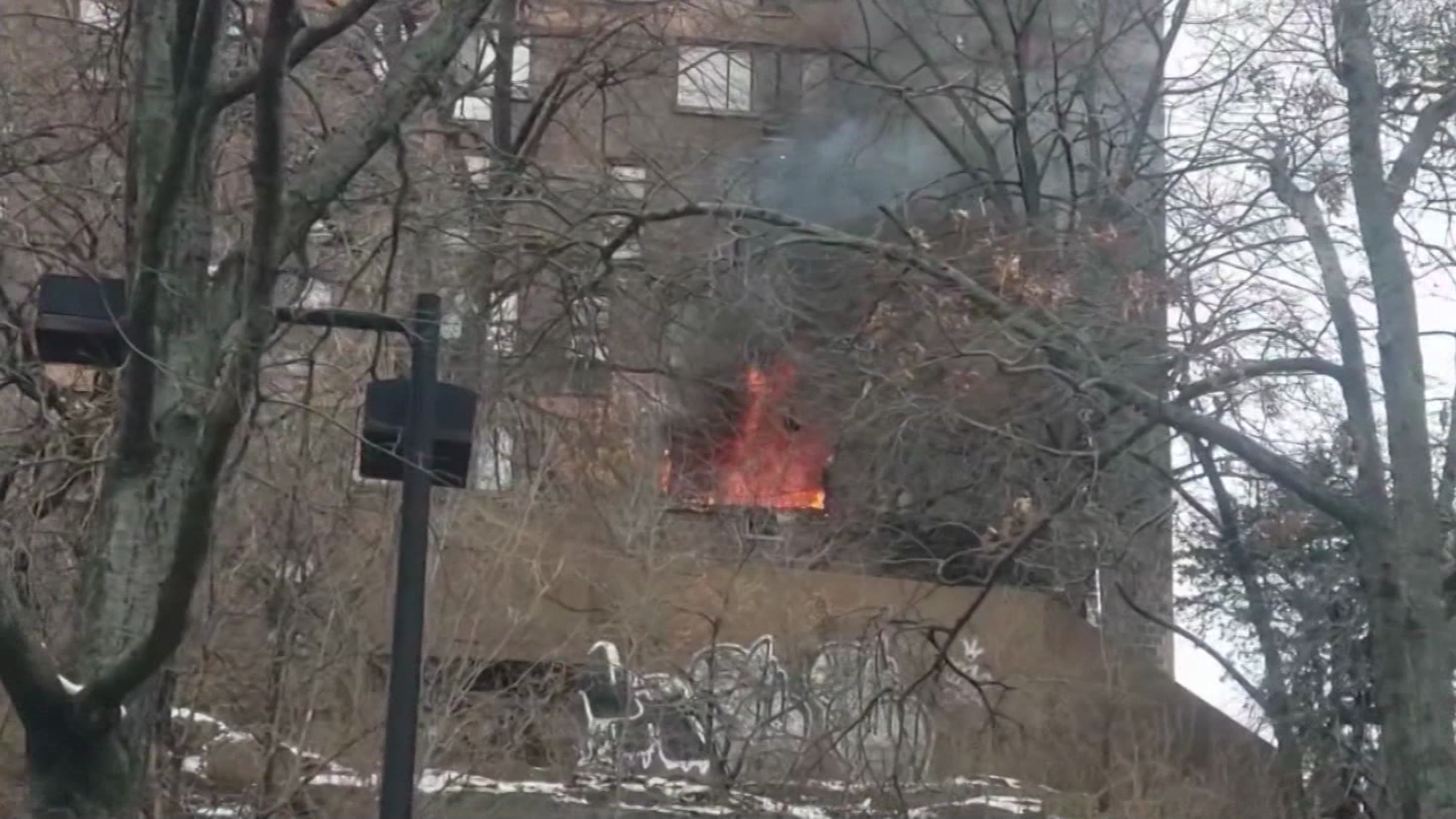Paris- If the French-Romanian writer Emile Cioran (1911-1995) was “one of the few who found poetry a way to think, and philosophy a way to keep reading it possible,” then we would not be exaggerating if we say that Adam Fathi is also one of the few who found poetry a way to He meditates and philosophizes, and for the Tunisian zajal on a tune to become Arab and global, and for the revolution to find a recipe to be embodied and become a tangible reality after it was an unattainable dream.
Fathi is described as having elevated direct political poetry and transformed it into a committed, deep and essential poetic politics, a paradise of rhymes and letters that only missionaries of morality and madness enter. In all of this we are led by Cioran himself, who said, “We need to think more when translating than we need to be creative.”
Since he was born in the village of “Umm al-Sama’a” in the Kebili governorate in southern Tunisia in 1957, Fathi carried his bundle of ideas and the dream of the South on his back and lost in the paths of imagination, eloquent, translator and intellectual united with the conscience of his people and his original commitment. He wrote lyric poetry and Sheikh Imam sang from his words and formed with Lutfi Bouchnak is a successful and unique duo, as well as many committed orchestras that flourished in the eighties, such as “The Musical Research Troupe” and “The White Doves”.
In poetry, Adam Fathi issued several collections, including “Green Story and Prince Adwan”, “The Eloquent Syndicate Song”, “Songs for the Flower of Dust”, “The Hanging” and “Blind Glass Blower: His Days and Works”.
As for translation, we mention translations such as “Charles Baudelaire’s Diaries,” “Avicenna or the Road to Isfahan,” “The Blue Tablet” by Gilbert Sinoé, and “Frida” by Naim Kattan, which in recent years has been devoted to accompanying the project of the Roman-French writer Emile Cioran. He translated for him “The Disadvantages of Birth”, “The Waters Are All the Color of Drowning”, “History and Utopia”, “Confessions and Curses”, “Exercises in Admiration”, and “A Message in Dissolution”, and a short time ago, the seventh book was published by Dar Al-Jamal. Within this project, a “falling in time”. The owner of the song “Sarajevo” won the “Sarkon Pauls Prize for Poetry and its Translation” presented by Dar El-Gamal in its second session in 2019.
In the following lines, a dialogue about his latest release, his career, his unique experience, tweeting with more than one voice and attached to more than one suite, and about the Tunisian and Arab revolution as it commemorates its 11th anniversary and several other issues.
-
You have recently published your translation of the seventh book, “The Fall in Time” by Emil Cioran, under which banner can we put this book?
Cioran cannot be divided into “signs” or “objects”. This book may be another return to the cherished “Syrian themes”; He constantly insists in every book that man is a victim of his illusions, and he is constantly working to strip him of every delusion, but he gives this or that point more attention in this book or that in what we can consider the difference of “angles of focus”. It is one in every book but in every fragment. It puts man under constant questioning and laughing skepticism as an expression of the difficulty of existence to the point of impossibility.
The “fall of time” represents a central link in the “chain” of the Syrian thesis, which indicates that man committed his first sins when he “accepted to be born,” then supported that sin by action, awareness, beliefs, ideological delusions, and political lies.
He suffers because of this and suffers from sickness, loneliness, insomnia, doubt, ingratitude, and the constant rupture between barbarism and false urbanization, inundated with the ordeal of discovering good and evil, losing innocence, and leaving Paradise. His exit from Paradise means for him the fall from “the eternity of the higher world” to time. It may mean the fall from time to another, shallower ‘perihelion’, the ‘eternity of the underworld’. He tries to overcome it all with a grin-like laugh. Perhaps this book is another one of those grins.
-
But this book was first published in 1964, and there is no doubt that it was an addition to Cioran’s blog, so what are its differences from his previous books that were translated? Why did you end the series with it?
If it is necessary to focus on a central idea characteristic of this book, let us say that it is “the superiority of the scene of the fall over the scene of death.”
Cioran says that whoever wants to be “more than he is” will soon be “less”. He insists that all creatures die, but that “only man is called to fall.” In fact, I thought about translating this book before other books, and my desire to translate it increased when I read a dialogue by the author in the nineties of the twentieth century in which he says that he sees this book – especially its last pages – as “the most serious of what he wrote.”
I felt that I was not ready to translate it at the time; I needed more confusion with his sense and rhythm as well as his lexicon. So I decided to start translating his first book in French, “All Waters the Color of Drowning” or “Measurements of Bitterness”. Then successive other books for a reason or no reason. Perhaps my translation of “The Fall in Time” on this particular date indicates that I reached a certain point in my personal relationship with Cioran, in a context parallel to the development of his own relationship with French.
-
I have also translated many literary works by Gilbert Senoue, Naim Kattan, Edgar Allan Poe, Baudelaire…etc, so how do you choose these works? Is it your personal mood or the publisher’s suggestions? What is your first motivation for translation?
Translation, like creative writing, is a dialectical relationship between many elements; Among them are private taste, spontaneous inclination, subjective desire, and objective need, but their first trigger, as far as I am concerned, is a vague voice that I call “the call of the depths.”
I am fortunate in this to be a publisher who from the beginning has sought to build craftsmanship on a foundation of cultural enterprise. And I want to remind here that artistic creativity in general is an essential part of “human food”. This is the worldly meaning that we ascribe to the well-known evangelical phrase, “Man does not live by bread alone.” We “eat” artwork and texts in order to be able to hold together in this crumbling universe. In this context, we translate texts because we want to “chew” them with our teeth, not with borrowed dentures.
On the other hand, you translate a book as you write a poem for reasons that you sometimes know after writing. You may translate that book because you wanted to write it, delete it, write some of it, debate it, or object to some of it; Thus, the written or translated books alternate in a dialectical relationship between subjective need and objective need.
-
Was it a coincidence that, prior to the Tunisian revolution in 2010, Cioran’s book “History and Utopia” was translated, which attempts to explain the mentality of tyrants and contains an entire chapter labeled “The School of Tyrants”?
Writers do not have to be “astrologers” or “palm readers” in order to “dialogue” with their future. Every creative writing (and translation in my view is creative writing) addresses in essence a reader who has no place except in the future. out of existence; Hence, all creative writing is “proactive” to some extent, or else it will fall into obsolescence and lose its reader’s creativity.
Therefore, I did not translate Cioran because he tells me or says my Arabic stage, so even if he approaches me in some points, he will not stay away from me in many points. I translated it because I felt his fertile energy as a writer. I felt that transferring that energy to Arabic – and I mean my Arabic specifically – could shake the “mammoth” lying in it and perching on it and push it to move the stagnant and disturb the resident in me. And welcome if the personal situation of the individual translator goes beyond.
-
As long as we are talking about “history and utopia”, who do you think makes tyrants? And who feeds them?
It is the people who make tyrants, and the people who remove them. Peoples are the ones who allow people or gangs to subjugate and overpower them, and peoples are the ones who build institutions that protect them from people’s tyranny and oppression. Peoples are the ones who give their rulers their legitimacy, and it is they who lift the cover of legitimacy from them. It is the peoples who allow the perpetuation of rule, and it is they who develop mechanisms that guarantee the circulation of governance and are keen on balancing between right and duty, and between freedom and responsibility. It is the people who acquiesce and prolong the life of the dictatorship, and they are the ones who rebel and build democracy. They do not consider democracy a paradise and do not think that it is a final stage.
Democracy is a process and a process that must be continuously pledged. You may stumble, you may experience crises, and you may retreat towards dictatorship openly or under masks, but it always remains a desired aspiration in comparison to dictatorship. Democracy, regardless of its known negatives, is better than dictatorship, whatever its alleged positives. That is the truth that must be recognized.
There is no difference in this field “between an Arab and a non-Arab” except by awareness and sacrifice, and if there is an “Arab distinction” in this issue, it is related to that lie propagated by rulers and internalized by the governed, which says that “peoples are not fit for democracy.”
It does not matter if the responsibility here rests with the elites or the masses; The elites are also from the people. The Arab-Islamic culture has understood this issue since the Prophet was attributed to him saying, “As you shall be given to you.” But this idea has not yet turned into a deep culture, and that will not happen as long as we prefer “the people’s praise,” compliments and hypocrisy, and as long as the people applaud everyone who knows how to circumvent them.
-
Today, Tunisia and many Arab countries commemorate the Revolution of Dignity and Freedom. How would you describe this event today, 11 years after its occurrence?
Some people ask this question while thinking the French Revolution of 1789, or the Bolshevik Revolution of 1917. The truth is that revolutions are not static constants and they are not ready-made recipes that can be measured against to ensure conformity of specifications. The truth is that when some were about to turn the “end of history” into a new religion, one of its components is that revolution has become impossible in the era of globalization, the war on terrorism, the treachery of the resistance, etc.; The Tunisian event appeared, moving everyone from the moment of the “impossible revolution” to the moment of the “possible revolution”.
I think that what happened in Tunisia at the beginning of 2011 is a truly revolutionary situation. However, Tunisians must make of their possible revolution a revolution that will be achieved through what they are achieving in the “next day” stage. However, it must be recognized that “the next day” continues until Now, that “book” is not closed yet.
-
Do you agree with the opinion that the success of the Arab political revolution depends on the establishment of a cultural revolution based on a deep and real cultural project?
There is no doubt in that; It is not enough to revolt in order to change, but we must change in order to revolt. Cultural change or not be. That is the mother of dilemmas in most of our countries, so as not to say in all of them. Perhaps our “revolutionary situations” have not yet succeeded in properly managing “The Next Day,” to be realized because we are unaware of the “essentiality” of the cultural dimension. Whatever political intentions are sincere and their slogans are noble, they remain mere intentions and slogans unless they turn into culture and creativity, and unless intellectuals and creatives contribute to their identification and formulation.
-
We cannot conclude this dialogue without going over an important dimension of your experience, and I mean your contribution to writing “zajal” besides eloquent poetry. Is zajal poetry of a second degree?
I think that this issue is not raised with such intensity except in the Arabic-speaking countries; This is because the gap has been widening between the people and their elite, and between popular culture and the cosmopolitan culture, and it would be more correct to say “the sociable,” and we will not bridge this gap as long as we speak in one language, write in a second language, and read and think in a third language. This gap is part of our devastating dilemmas, and perhaps it will only be filled when we study in our universities Al-Barghouti or the Tunisian Belqasim Al-Yaqoubi, or the Egyptian Fouad Haddad and Abdel-Rahman Al-Abnoudi, and the list is of course much longer than that, along with other creators and creators in various Arab countries.
-
You say in one of your dialogues, “The poem is part of the writing equation, but it is not the whole equation, and what we find while writing is more important than what we plan and search for.” How do you live the details of the poetic and creative process?
I find it increasingly difficult to deal with such questions, and if this question were asked to me today I would not have dared to say such words, for I have no such “certainty”.
Perhaps I do not see a better answer than this excerpt from the “Book of Desire and Oblivion,” which I am preparing to publish soon: “You ask me about poetry/Oh, oh, what do I say, my daughter?/The most beautiful thing about it/It comes to me when it goes away/And leaves me where it comes/A bag thrown for passersby?” / And my secrets are outward / Like a watermelon sprouting by hand / As for poems, look / Look at your father’s body / You will not easily dig out what you dig / The teeth of time and the teeth of poetry.





